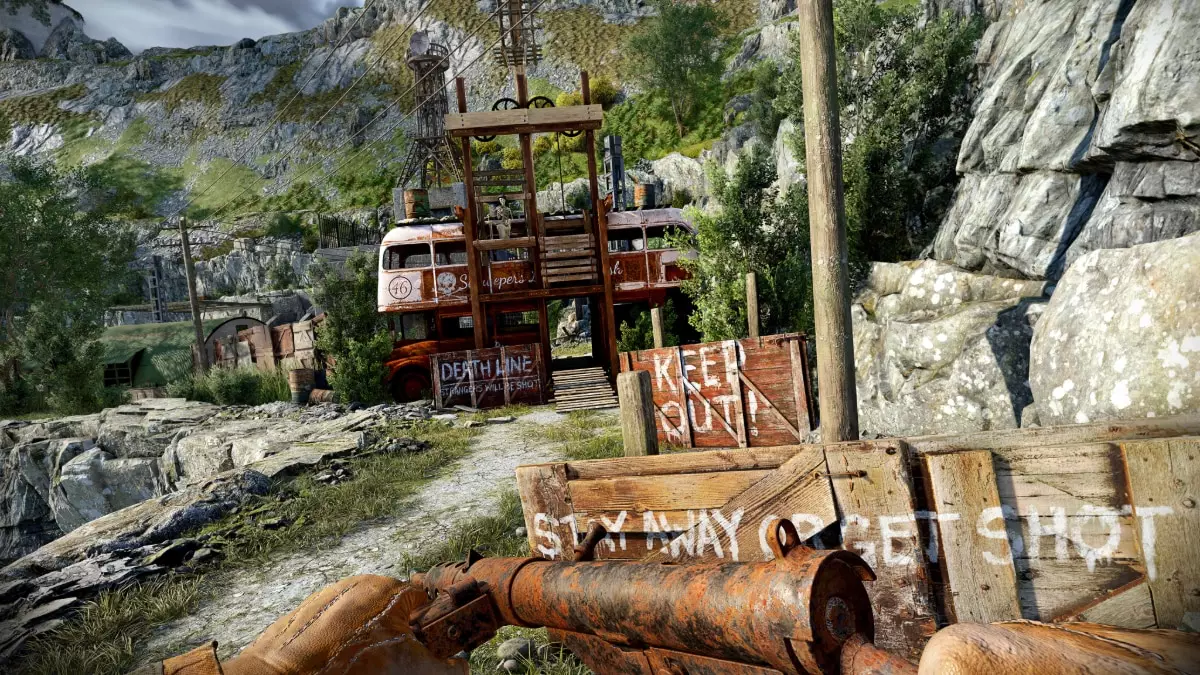Atomfall, a fresh entrant into the action-survival genre, has taken the gaming world by storm since its release last month across various platforms including PC, PlayStation, and Xbox. The game, developed by Rebellion Developments, has already crossed the impressive milestone of over two million players within a short span of time, a feat that speaks volumes about its inherent appeal and strategic launch approach. What’s particularly noteworthy is Atomfall’s debut on Xbox Game Pass, which has indisputably been the ace up its sleeve, revolutionizing both its initial reception and potential longevity in the crowded marketplace of gaming.
The Game Pass Effect: A Double-Edged Sword?
From the onset, it was evident that Atomfall’s inclusion in Game Pass was more than just a clever marketing ploy; it was an audacious move that leveraged Microsoft’s powerful platform to catapult a small studio into the limelight. Jason Kingsley, CEO of Rebellion, describes the partnership as “fantastic,” hinting at the constructive synergy that Game Pass can provide independent developers unable to match the marketing muscle of larger studios. However, should we be overly optimistic? While Atomfall benefited from increased visibility, launching on a subscription model can sometimes undermine traditional sales. Is this a sustainable model for serious gaming, or does it risk relegating new titles to the realm of overlooked side projects?
The dual-channel approach of Game Pass, where players can try before they buy, has proven advantageous. Kingsley noted that it fosters community discussions, creating a ripple effect whereby players share their experiences across social media platforms. Yet, the real question remains: can a subscription service cultivate a genuine, lasting investment in new titles, or does it promote a transient relationship with games that are just one click away from obscurity?
The Profitability Paradox
Interestingly, despite the initial concerns surrounding revenue loss from potential direct sales, the figures suggest a promising trajectory. Rebellion’s decision to enter Game Pass came with the assurance of a fixed monetary return, which not only kept the studio afloat but also ensured its profitability relatively quickly. Kingsley indicated that their sales numbers exceeded expectations significantly, a crucial detail that might ignite discussions about the viability of subscription services serving as a launching pad for independent developers.
The term “disproportionate gains,” used by Kingsley, dances precariously on a tightrope of optimism and caution. Yes, the metrics seem favorable now; however, what happens when the novelty wears off? Will players continue to engage with Atomfall, or will they become distracted by newer, shinier titles? A momentary spike in players is fantastic, but the true test lies in longevity.
A Mirror to Reality: The Setting of Atomfall
Set against the haunting backdrop of post-apocalyptic northern England, Atomfall draws inspiration from the real-life Windscale incident of the 1950s, adding a touch of grim reality to its narrative. It is a bold thematic choice that resonates not just as entertainment but also as a commentary on energy policies and the precarious balance between progress and peril. In a world where gaming narratives often lean towards escapism, Atomfall’s choice to tackle real-world issues is both daring and commendable, reflecting a growing trend among developers who strive to tackle social themes head-on.
Yet, some might argue that this approach could limit its audience. Games that challenge players on moral or societal grounds may alienate those in search of escapism. Striking a delicate balance is paramount, and while Atomfall offers an intriguing narrative, one must question whether the complex thematic elements will enrich or detract from the overall gameplay experience.
The Future of Atomfall: Sequel or Standalone Success?
As Atomfall surges ahead, the possibility of a sequel has already begun to intrigue gamers and critics alike. Kingsley’s remarks hint at a willingness to expand the universe of Atomfall. However, the crucial factor remains the ability to secure enough resources to pursue this potential. Will Rebellion remain an independent powerhouse, or is it destined to get swept away by larger entities as they scramble for dominance in gaming?
In an age where franchises and sequels often reign supreme, returning to a successful formula may seem like an easy path. However, I argue that true innovation lies in exploring fresh ideas. If Rebellion successfully navigates the challenges of maintaining profitability without sacrificing creativity, they might just carve out a lasting legacy in the annals of gaming history.



Leave a Reply